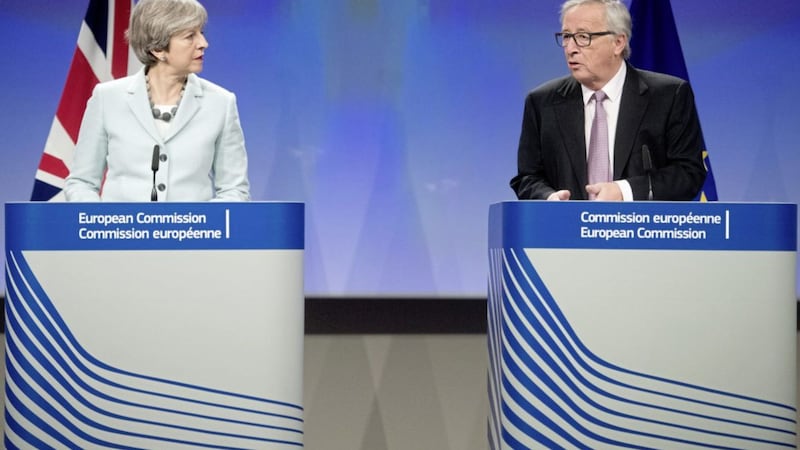THE political border between the two states on the island of Ireland - north and south - was an important element in last week's EU/UK stage one negotiations on Brexit.
The success of seamless systems (to the maximum extent possible) flowing and growing between the two states is now seen in Dublin, London and Brussels, as being necessary for future relationships in the short-to-medium term.
But the border in Ireland was only one element of a broader transaction of agreed international principles.
Alongside that, the border of EU history was - and is - being successfully bridged (at least for now) to bring some degree of strategic stability to international affairs during a period of unprecedented global chaos and crisis.
That current explosion of chaos and crisis is exacerbated by the fact that the United States, in particular, cannot now be relied upon by previous diplomatic partners to uphold traditional models of international stability. (Unilateral actions, such as designating Jerusalem as Israel's capital, testify to that.)
That's why the management by all sides of the Brexit negotiations to reach a stable point of potential, in itself, represents a strategic milestone of sorts. And there are a range of important lessons we could learn from that process.
First, the framing of key principles of agreement actually does matter. Whether they are legally enforceable under domestic or international law, or whether they come with a fully scheduled implementation plan, is consequential to primary agreement on the framing political principles.
For example, last week's agreement essentially reinforced the broad political principles underpinning the 1998 Good Friday Agreement, which itself flowed from other concepts and principles that were developed over previous decades (particularly in terms of substantive equality and human rights in an EU context).
Second, deadlines, timescales and sequencing are critical. The European Commission's imperative of using Friday's EU Council meeting to create a bottleneck is a case in point.
That's because - only after agreement on phase one principles - could the UK get an opportunity to negotiate on detailed issues of trade.
Third, institutional knowledge and thorough understanding of the machinery of government - in a context of functioning public institutions - was vital.
Even in London, a key staff shift in September was core to streamlining and centralising the UK negotiating position, when Ollie Robbins - former permanent secretary in David Davis's department for exiting the EU - was brought to the heart of Theresa May's cabinet office to coordinate negotiations.
Fourth, positive diplomatic relationships between officials are fundamentally beneficial. The downside of diplomatic officials remaining in long-term posts may be a degree of institutionalisation.
But the importance of career skill sets and sustainable trusting relationships - particularly between Dublin and London, and Dublin and Brussels - was clear last week.
Fifth, the increasingly powerful role of various outliers (especially economic, media and security) shows that traditional elected politics no longer carries overarching authority in the affairs of state.
During the summer, as indicated in this column, key influencers outside of elected politics were central to shaping an appetite for a transitional Brexit, which is now the direction of travel.
Sixth, the shifting dynamics of modern communications - particularly social media - can, in seconds, turn uninvolved parties into key players, from journalists, to political opponents, to lobbyists.
That was seen with the impact of news reports early last week on the impending text of the agreement. So new methods of managing negotiations need to be considered in the unprecedented context of constant news and public engagement.
It is important for positive future development across the island of Ireland that a focus remains on working through the detail of economic, social, rights and political development in the context of ongoing Brexit negotiations.
But it must also be remembered that, while the established tenets of negotiations remain paramount (particularly securing agreement on shared overarching principles), the context of all diplomatic and political negotiations is now shifting continuously.
Our local politics can learn a lot from the current 21st century laboratory of Brexit negotiations.
And while long-term, subterranean relationships of trust between differing sides is a prerequisite, it is equally important to realise that the strategic benefit of agreements can be much bigger than simply the issues to which they relate in detail.
Just as the Brexit agreement was being released and parsed on Friday, the EU-Japan trade agreement was being released to create the world's largest economic area, amounting to 30 per cent of GDP.
We in the north must start to get an objective sense of perspective about the real world going on around us, and the lessons we can learn - not just the various agendas we seek to promote.
There's a long way to go.








